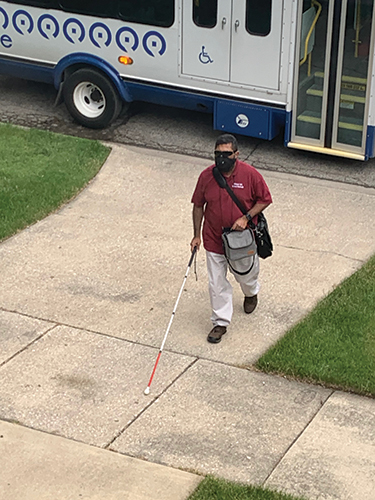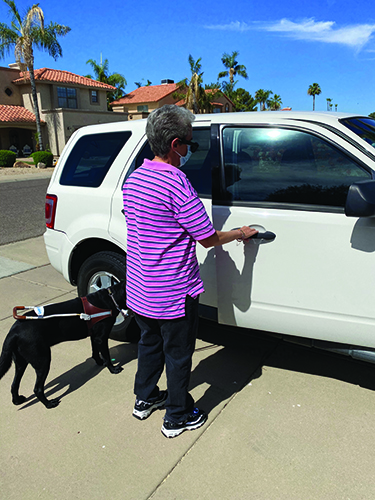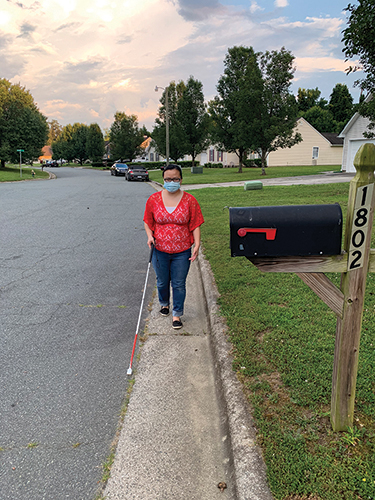Initiatives will improve mobility and opportunity for people who are visually impaired

Transportation is more than just a way to get from point A to point B. It’s essential to getting and keeping a good job and, for older adults, continuing to live independently.

AFB is working to address these concerns with several initiatives. One of these is an ongoing project supported by the Volkswagen Group of America’s Future Center California, called Project VISITOR, which is studying transportation options available to older people with vision loss. There’s also a push on the legislative front specific to paratransit providers, which are federally funded agencies required to provide transportation to people with disabilities. Few agencies provide services that are flexible and comprehensive enough to meet the real-world needs of people who are visually impaired.
For example, riders generally can’t make a stop on the way to a final destination or schedule rides less than 90 minutes apart. This lack of flexibility is why AFB is talking to legislators about the upcoming federal surface transportation bill. This legislation presents an opportunity to encourage agencies to allow riders to make stops for specific, essential needs and eliminate some red tape.
“The intention is to incrementally move the paratransit regulations toward being person centered rather than institution centered,” explains Sarah Malaier, AFB's public policy and research advisor. “We want paratransit to work for everyday living and true inclusion and integration into the community.”
Moving forward, AFB will continue educating policymakers on this issue and looking for more opportunities to partner with paratransit, rideshare, and taxi companies, among others, to explore alternative transportation solutions.
